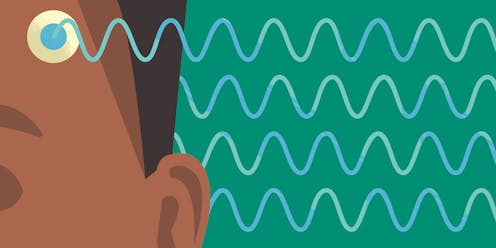Brain-zapping, the curious case of the n-rays and other stories of evidence
- Written by Sunanda Creagh, Head of Digital Storytelling

You’ve had an x-ray before but have you had an n-ray? Of course not, because they’re not real.
But people used to think they were. Scientists had shown they were. And the weird history of n-rays, explored in today’s episode of Trust Me, I’m An Expert, tells us a lot about people’s willingness to believe wrong information – but also how well-designed studies can debunk myths, reveal important truths and bring good evidence to the surface.
Today, we’re bringing you stories on the theme of evidence. We’d love you to listen to the whole thing, but here are a few snippets to get you started.
What would a digital forensics expert find in your phone’s photo reel?
Richard Matthews, an expert on forensic identification, was given photos from the phones of two Conversation editors. It was unsettling how much information he was able to unearth from the metadata hidden in these photos.
Why would someone be a guinea pig in a science experiment?
We talk with a woman who was part of a randomised controlled trial on how a new treatment called transcranial direct current stimulation (tDCS) might affect people with depression. And Laurent Billot, a biostatistician and an expert on study design, explains how everyone can benefit when people volunteer to participate in a randomised trial.
Sham surgery, double-blinding and scurvy
Andrew Leigh, the federal member for Fenner and Labor’s shadow assistant treasurer, was a professor of economics in a previous life.
Today he’s talking with Fiona Fidler, an expert on the history of science and the replication crisis, about some of the ideas he explores in his new book Randomistas: How radical researchers changed our world.
The weird history of n-rays
Conversation editor Madeleine De Gabriele tells us about a form of radiation “discovered” in 1903: n-rays. Later debunked as myth, the n-rays case tells us a lot about how much people are influenced by what they believe to be true. She spoke to Will Grant, who researches public awareness of science.
What the studies show about treating depression with a gentle electric current to the head
We’re ending today’s show with Professor Colleen Loo, who shares with us some of the promising results from the transcranial direct current stimulation (tDCS) study we mentioned earlier:
For support, call Beyond Blue on 1300 22 4636, Lifeline on 13 11 14 or visit Headspace, which has information for schools, young people, and family and friends.
Trust Me, I’m An Expert is out at the start of every month. Find us and subscribe in Apple Podcasts, Pocket Casts or wherever you get your podcasts.
Additional audio
Kindergarten, Unkle Ho, from Elefant Traks
Free Music Archive, Ghost Science by Teeth Mountain
Free Music Archive, Wisteria by Blue Dot Sessions
Authors: Sunanda Creagh, Head of Digital Storytelling




